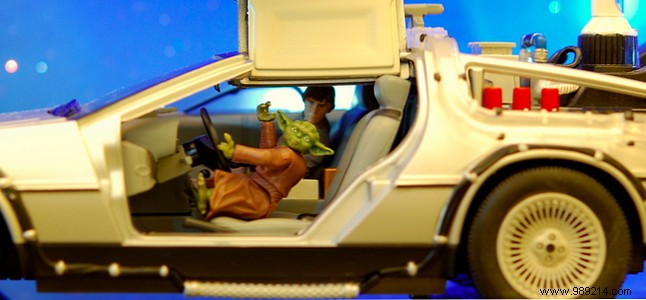It was only a couple of years ago that we, the public, began to understand the term Internet of Things (IoT). Until then, we had never really entertained the idea that our bathroom faucet might want to chat with the dishwasher.
Our ingenuity in these matters promised us many great things. It also holds many great dangers.
The IoT is full of inflated promises of greater efficiency, easier lives, and perfect people and industries. It's reminiscent of Snowball falsely promising the others in Animal Farm that their new technology, The Windmill, would bring them a life of peace and leisure. A life in which "sordid work" would be lifted off their backs.
The same promises were made when email and smartphones were invented. These advances were hailed as a miracle ointment, ready to be used by all for an easier and better life. The same thing is happening now with the IoT. Potential benefits become bright, while dangers cast in silent shadows.
It is time to draw attention to these dangers. Here are seven terrifying promises of the Internet of Things:

If you find the ads you get sent every time you use something digital frustrating, you haven't seen anything yet.
It won't be long until your pants are horrified by your weight gain 5 Ways High-Tech Personal Wearables Will Change Your Life 5 Ways High-Tech Personal Wearables Will Change Your Life Will the Internet Go Away? High-tech personal wearables can bring the Internet into the background of our lives. That is how. Read more . In turn, they will conspire against you. They will have television showing contextual ads about new fad diets. The touch screen in the fridge will sell you low-fat yogurt. Your watch will prompt you to pay for a new fitness app. Google might even have its NEST Thermostat, with its many uses 13 Things You Didn't Know You Could Do With a Nest Thermostat 13 Things You Didn't Know You Could Do With a Nest Thermostat Nest Thermostat! Read More
It used to be the case that our private dwellings were our quiet escape from high street bombing. But marketers have invaded that privacy through TV commercials, cold calling and, more recently, our connected devices. With the future promising the connection of everything, including the kitchen sink, the only means of escaping so many advertisements will be on top of a snow-capped mountain. How to Turn Your Next Vacation into an Adventure How to Turn Your Next Vacation into an Adventure Adventure is a state of mind. Take some ideas from here when you want your vacation to be a compromise between new emotions and familiar relaxation. Read more.

With the IoT comes a flourishing of “tracking devices” Not the Apple Watch:9 Other iPhone-Friendly Wearables Not the Apple Watch:9 Other iPhone-Friendly Wearables The Apple Watch announcement was big news, but it's far from the only wearable device designed to be used with an iPhone. Read more ". Little devices that track everything from the steps you take to a minute-by-minute analysis of your cortisol levels. By tracking certain aspects of our lives, we are told, we can "optimize" and "make better life decisions."
In other words, if we have enough data, we'll know exactly what to do to become the perfect version of ourselves. If we are overweight, sick, tired or stressed, the fault is ours for not paying attention to “The data”.
Society will divide us fat and unhappy simply for choosing human error over a life dictated by algorithms and apps. No doubt the corporations will also punish us. More expensive health insurance because the sensors in the fridge saw how many pork pies we've eaten, it's just the beginning.
This pressure for continuous improvement and optimization drags us further from the present than current technology forces us to go. This will necessarily drive an even bigger wedge between those who are connected and those who are not.

It used to be that when we bought a washing machine, it was a rare expense. The next one would be bought in 15 years or so. Something could go wrong in the meantime, but the guy down the road would fix it.
Nowadays, washing machines have a much shorter lifespan. We have to be prepared to pay for a new one every five years (thanks to planned obsolescence). A new smartphone, smartwatch and tablet every three to four years. A new laptop every four or five years. These lives are short . The only consolation is that there are not many things to replace..
Until the IoT, that is.
Your mattress may not need to be replaced every two years, but the sensor inside it may. The same goes for the kitchen table and the sofa. For cheaper connected devices like the kettle, the toaster, your belt 5 Ways High-Tech Personal Wearables Will Change Your Life 5 Ways High-Tech Personal Wearables Will Change Your Life Will the Internet Go Away? High-tech personal wearables can bring the Internet into the background of our lives. That is how. Read More expect replacement of these components to become a new and regular expense.
When your house is inundated with 30, 50, 100 connected devices, that's a lot of electronics to keep working 365 days a year. That's a lot of replacing broken sensors. That's a lot of money.

The Internet has been around for around 20 years, and its security is far from perfect. Hacking groups still relentlessly exploit these flaws. The 4 main groups of hackers and what they want. The top hacker groups and what they want. It's easy to think of hacking groups as some kind of romantic revolutionaries. But who are they really? What do they represent and what attacks have they carried out in the past? Read More The IoT, on the other hand, is primitive. And also its security.
As the IoT explodes, it is physically impossible for the security industry to keep up. Simply the password protection of each of our devices does not work. People are leaving default passwords set, leaving their devices massively vulnerable to attack. But who can blame them? Who would want to manually change the password of 75 devices at home and at work?
Until this ship of vulnerable technology is somehow secured (the most common sensors, RFID, don't really have security), your smart TVs, baby monitors, and even Jeep Cherokees remain open to attack. Don't expect this to be a problem that will go away quickly.

The reason there is so much hype about the IoT is quite simple. Once we keep track of everything we do, say, think, and eat, the big data available about each of us is immensely valuable. When companies know our lives inside and out, they can use that data to get us to buy even more stuff. Once they control your data, they control you.
When that data is anonymized, it helps companies sell to broad market segments. More preferable and more valuable is when that data can be linked to an individual (ie you and me). When a supermarket knows the foods you buy, they can offer you completely personalized offers. When Amazon tracks the products you look at, they can recommend other products based on your individual taste.
It's a good deal, of course. But it also means that any information tracked about us can be linked back to us. The calls you make, the messages you send, the food you eat, the clothes you buy, the photos you take. The sites you browse, the time you spend sitting, the number of beers you drink, the steps you take and the conversations you have. This information is all open for picking. Once your connected devices are perfectly in sync, your image available to corporations and governments will be more detailed than you can imagine. Privacy is dead.

Look around. There is no denying that we are already over-connected. Children all over the world suffer from extreme digital addiction. Extreme digital addiction is destroying the lives of children around the world. Extreme digital addiction is destroying the lives of children around the world. it's time we reflected on the amazing impact this is having on their development. Read more . Family time is being ruined by smartphone notifications. What else do we expect from technology?
Is there any real benefit to be gained from an oven that turns on only when it knows it's on the way home? From getting a ping when you're at work telling you the house is too cold? From your smart watch telling you that your plants need watering when you run?
All of this is setting us up for complete digital exhaustion. The anti-tech movement of neo-Luddism is expanding rapidly for a reason. People are tired of relying so much on technology. They are longing for a simpler way of life. Not the inflated promise of one, which is what we're dealing with with IoT, but somethingactually simpler.

One of the most pressing technology choices we make today concerns the ecosystems we choose. When we buy a laptop, do we choose Windows or Apple? When we buy a smartphone, do we choose Android or iOS?
Once we've made a decision, it's hard to go back. Moving all your photos, music, and videos from one ecosystem to another is a nightmare, and not something you want to repeat over and over again.
When it comes to IoT, the choice is even more important. This is because the industry is new and there are no leading ecosystems to set the “Standard” for how devices communicate. The entire industry is fragmented. Remember when HD-DVD was fighting Blue-Ray. If you placed your bets on HD-DVD, a year later you were out of pocket. We are in the same position now with the IoT.
If your entire building is running connected devices that rely on different ecosystems, you have a nightmare on your hands. You'll have to live juggling a ton of devices that can't work together, or you'll have to replace a lot of them once you master a single ecosystem.

The IoT will certainly bring benefits. But it will also bring many dangers. Those who are pushing for the IoT to become a big business are those who are willing to make the most of it, and we should not be singled out for this. After all, the IoT will run on Big Data. And Big Data means Big Money..
The focus of this article has been largely on the use of IoT in the home. It seems that this is the area that is so exciting for many consumers, it is what many people imagine when they hear the term “Internet of Things”.
However, the technology behind the IoT is also doing some amazing work outside of the home. In the United States, smart technology is listening to the sound of gunshots in neighborhoods. In Mumbai, sensors in the water system have helped reduce water loss by 50%.
So we need to stop freaking out about how smart technology can connect our furniture and utensils to the Web. Instead, we should be focusing our efforts on how we can use this technology to make real change. On how the IoT can deliver real benefits to those in need that.
After all, who needs their toilet to tell them how many times they've been down in a week?
What else scares you about the Internet of Things? What should we be wary of and what should we look for to avoid?